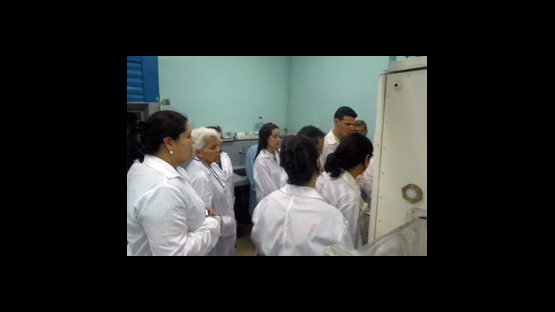Radiopharmaceuticals for targeted cancer therapy are an effective treatment for some kinds of cancer. This therapeutic approach involves the administration of a 'smart' single molecule radiolabelled with a radioisotope (radiopharmaceutical) decaying through the emission of massive particles like beta or alpha particles. Due to its intrinsic chemical structure and composition, the radiolabelled molecule is able to selectively target cancerous cells, penetrate their external membrane and release the energy of the decay particle to the malignant cell, eventually destroying it. A number of useful therapeutic radiopharmaceuticals have been developed and currently they can be efficiently applied for the therapy of various malignancies including non-Hodgkins' lymphoma, neuroendocrine tumours, metastatic bone disease and hepatocellular carcinoma.
In Latin America and the Caribbean the limited availability of qualified professionals, harmonized protocols and proper infrastructure able to work up the manufacturing and quality control of radiopharmaceuticals restricts the introduction of these novel therapeutic approaches. A new ARCAL project RLA6074 'Supporting the Development of Regionally Produced Radiopharmaceuticals for Targeted Cancer Therapy through the Sharing of Capabilities and Knowledge, and Improvement of Facilities, Networking and Training' is aimed at delivering capacity building to the region for supporting the human resources required to introduce and correctly conduct the new therapeutic agents in the clinical usage. The project has been designed to transmit essential scientific information, operational training, guidelines and documentation necessary for establishing a clinical study with therapeutic radiopharmaceuticals which have being already recognized to be effective against some types of cancers.
A first Coordination Meeting of the project took place in Havana, Cuba on February 2014. The meeting brought together National Coordinators from the fourteen Latin-American and Caribbean countries participating in this initiative: Argentina, Brazil, Chile, Colombia, Costa Rica, Cuba, Ecuador, Guatemala, Mexico, Nicaragua, Paraguay, Peru, Uruguay, Venezuela.
The project will last for three years and is expected to make a significant contribution to national healthcare systems by favouring the introduction of alternative therapeutic strategies for the treatment of cancerous diseases.


